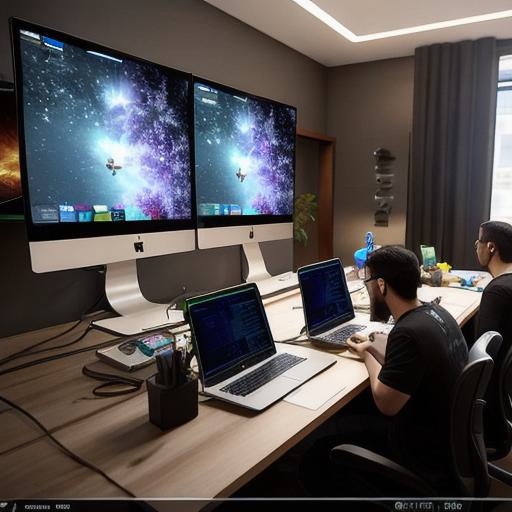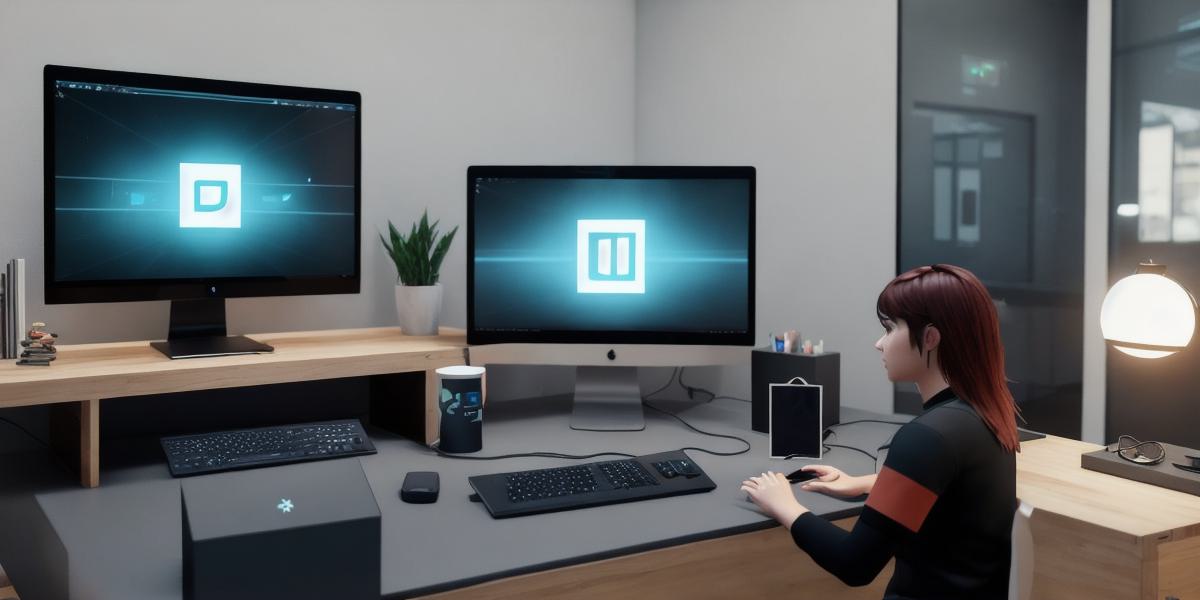Introduction:
Welcome to our comparison of Unity and Unreal Engine, two popular game engines widely used by indie game developers. Both engines have their unique strengths and offer various features that cater to different development needs. In this text, we will explore the key differences between these engines to help you make an informed decision for your next project.
- Learning Curve:
Unity:
Unity has a gentle learning curve, making it an ideal choice for beginners. It offers extensive documentation and a vast community of developers who share assets and knowledge. Its intuitive interface is user-friendly, allowing you to quickly create prototypes or develop complete games.
Unreal Engine:
Unreal Engine has a steeper learning curve compared to Unity due to its more complex features. It offers a powerful editor with advanced visual effects and physics capabilities. However, it may require additional time investment for indie developers to master the engine completely.
2. Performance:
Unity:
Unity’s performance is generally good, but it can be improved further using various optimizations and third-party plugins. It is known for its flexibility in handling different genres and platforms, including VR and AR experiences.
Unreal Engine:
Unreal Engine offers superior performance, especially in terms of graphics rendering and physics simulations. Its advanced features like dynamic global illumination, volumetric fog, and real-time reflections make it a preferred choice for creating visually stunning games.
3. Community Support:

Unity:
Unity boasts an extensive community of developers who contribute to its asset store, forums, and tutorials. This support system makes it easier for indie developers to find resources and learn from their peers.
Unreal Engine:
Unreal Engine’s community is also strong, but due to its more advanced features and steeper learning curve, the support may not be as readily accessible for beginners compared to Unity. However, experienced developers can benefit significantly from Unreal Engine’s advanced capabilities and the wealth of knowledge shared within its community.
4. Cross-Platform Compatibility:
Unity:
Unity supports multiple platforms out of the box, including mobile, web, console, and VR. Its extensive asset store offers pre-built solutions for various platforms, making it easy to publish games on different stores and devices.
Unreal Engine:
Unreal Engine also supports cross-platform development but requires additional effort to set up for specific targets. Its advanced features can lead to higher performance and better visual fidelity across various platforms, making it an excellent choice for creating visually impressive games.
Conclusion:

Both Unity and Unreal Engine offer unique benefits for indie game developers, and the choice between them ultimately depends on your project requirements and personal preferences. If you are a beginner or working on a smaller-scale project with a focus on rapid prototyping, Unity may be the better option due to its gentle learning curve and extensive community support. However, if you are an experienced developer working on a larger-scale game with demanding graphics and performance requirements, Unreal Engine’s superior capabilities might serve you better. Regardless of your choice, both engines provide excellent tools for creating engaging indie games.
